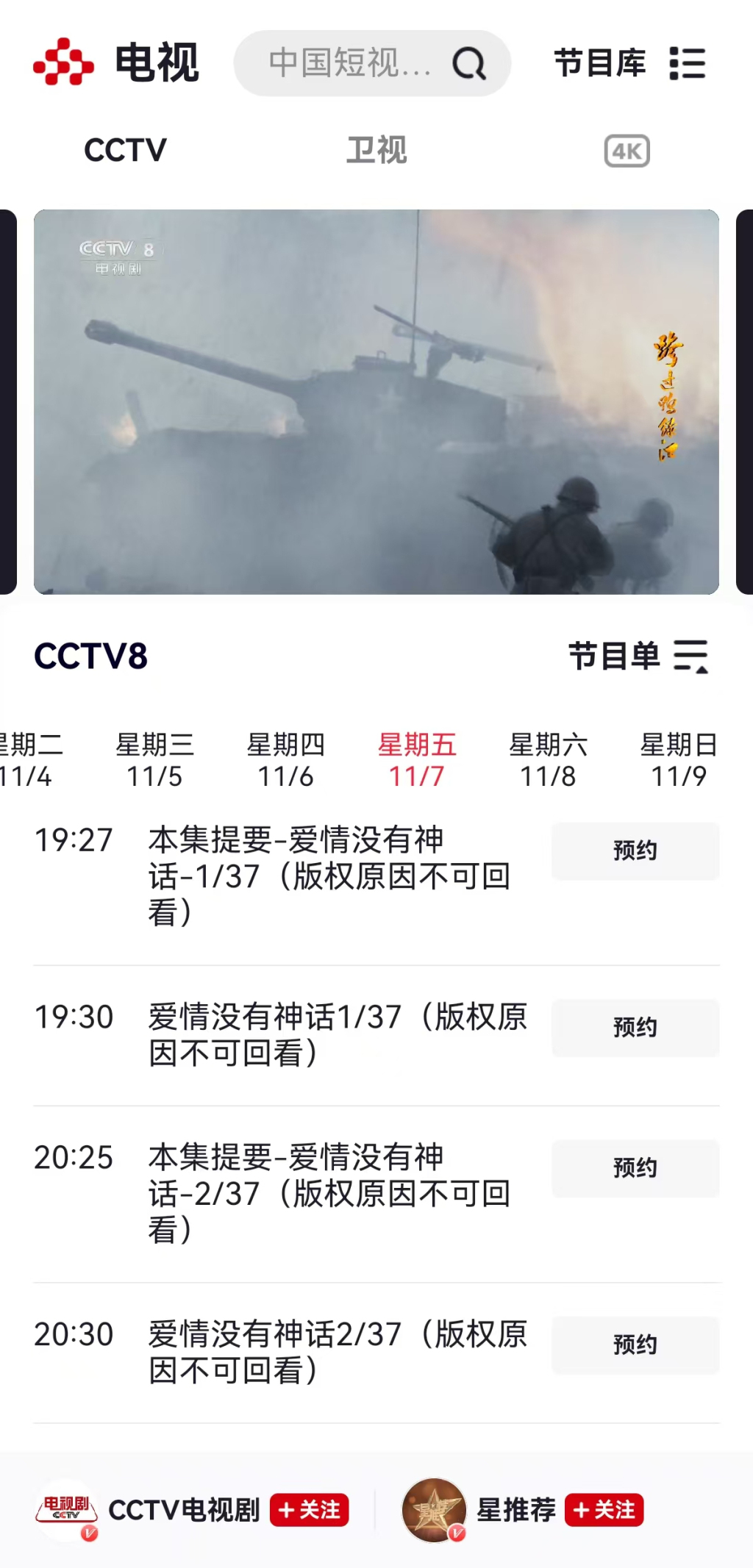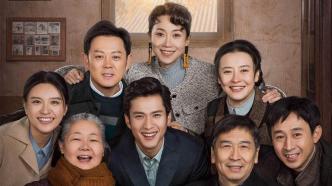
"Love in the Courtyard", "The Little Woman at the Zhengyang Gate" and "Silly Spring", a series of classic TV dramas telling the stories of old Beijing Hutongs, are all produced by Beijing director Liu Jiacheng. Recently, he collaborated with his old partner, screenwriter Wang Zhili, on the new drama "Love Full of Nine Bends", which continues to tell the life legend of a generation of Hutong youths in Beijing.
How do young people today understand young people of that era?
The story begins in 1979, when a group of educated youths from Beijing returned to the city. The protagonist Yang Shumao (played by Han Dongjun), his first love Shi Xiaona (played by Chen Yao), his partner Zhao Yajing (played by Chong Danni), and the younger sister Ye Fei (played by Reyza) Decades of tortuous life experiences. In the past, many of Liu Jiacheng's dramas used well-known "old actors" in the industry to play the leading roles, but this time, "Love in Nine Bends" has used young actors such as Han Dongjun, Re Yiza, and Chen Yao. Liu Jiacheng said bluntly, "When the script first came out, I also thought about middle-aged and elderly actors. Later, when I thought about it, they were all 16 or 17 years old when they jumped into the line. When they returned to the city, they were in their early twenties. The beginning of the story is about first love. A 20-year-old actor talks about his first love, the actor feels uncomfortable, the audience feels uncomfortable, and I also feel uncomfortable."
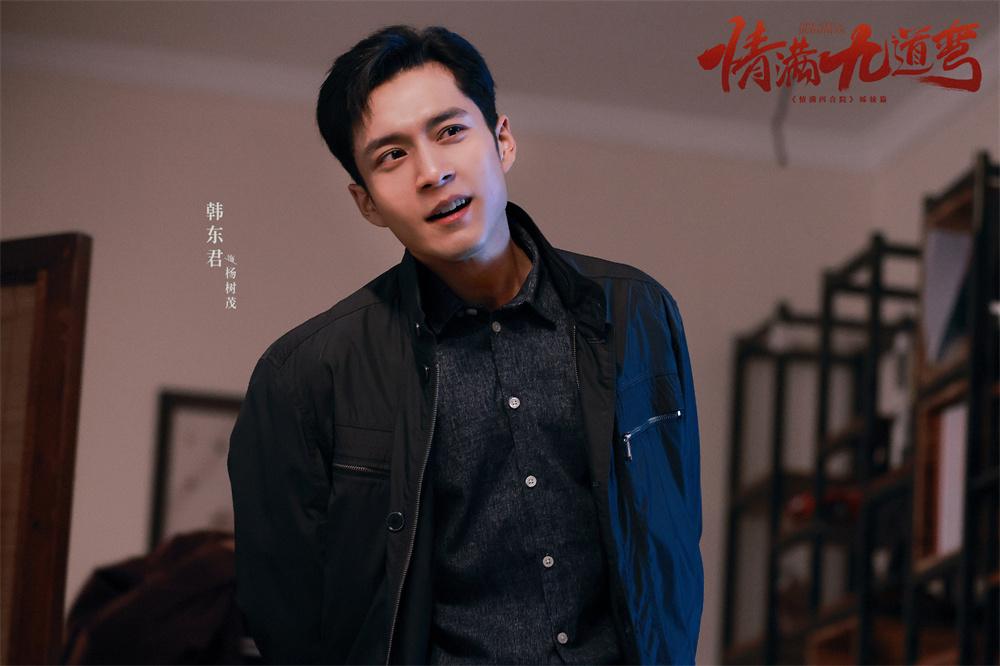
Han Dongjun as Yang Shumao
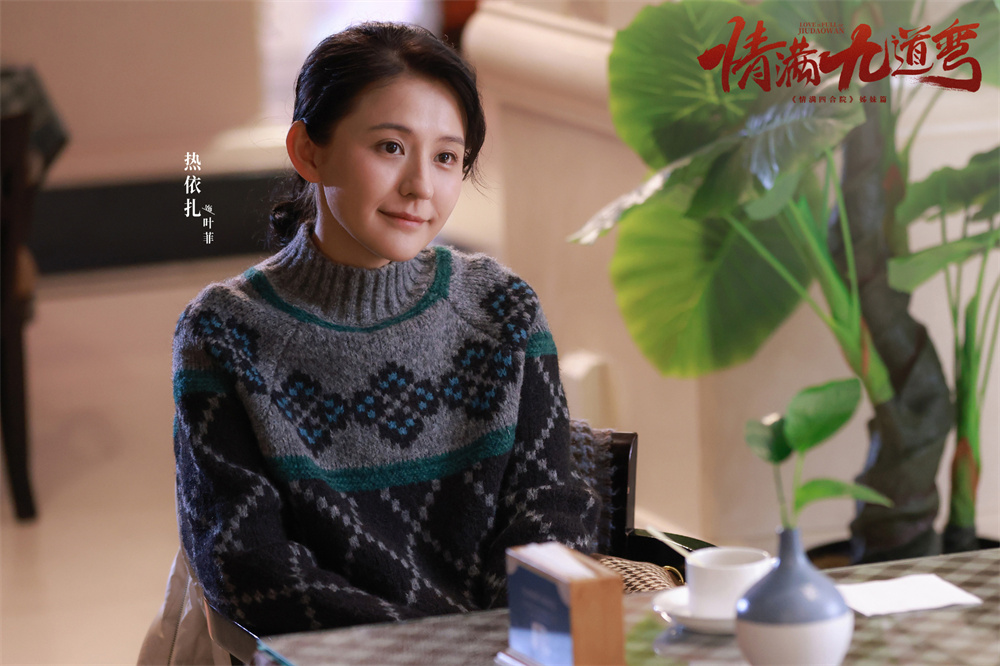
Reyza as Ye Fei
When using young actors, it is natural to face a question: Can contemporary young actors understand young people of that era? Liu Jiacheng said that the actors have tried their best to restore the state of young people in that era. "First, we select actors of this age group who have acting skills. These young actors have good acting skills and strong understanding. The script is given to him, and he will digest and prepare by himself. If he can't digest it, let's do more on-site communication and It’s okay to demonstrate. There are some conceptual things that are different and cannot be communicated. They may outline them in the script, and then come to ask me, saying that it’s a bit difficult. How will young people deal with it. In such a situation, We will have separate reading sessions for these scenes, and I will answer their questions."
For example, in emotional scenes, Liu Jiacheng will tell the young actors the story of himself and his lover. "In our generation, the love process was very slow. It took a long time to meet each other before we held hands, and it took a long time to fall in love before we hugged. Moreover, when we were young, communication and transportation were not so developed. When I went out to film, I left for 90 days. Correspondence. A letter is sent out for seven or eight days, and it takes seven or eight days for it to come back. The process is slow, but it also makes you feel that it is worth cherishing."
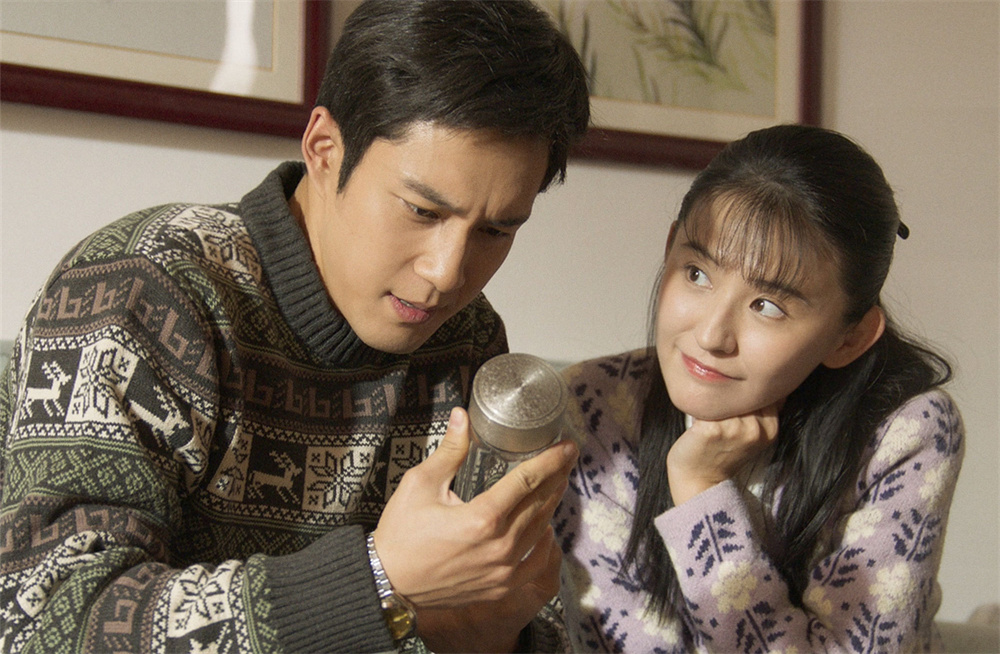
Stills of "Love in Nine Bends"
In "Love Full of Nine Bends", Liu Jiacheng expressed all the human feelings in the Beijing Hutong market that he personally experienced when he was growing up. For example, Yang Shumao went to the south for the first time to do business, and his future was uncertain. Ye Fei's mother subsidized him some living expenses. Although it was only twenty or thirty yuan, Yang Shumao was very grateful. A few years later, when he returned to his hometown, he did not mention repaying the money, but bought the best clothes for the Ye family mother and daughter, which were worth much more than the tens of dollars in the past. In Liu Jiacheng's understanding, this is a kind of "consideration" and "decency" of old Beijing. "Old Beijingers are like this. For example, you lent me 100 yuan when I was in trouble. Now that I am living well, I will give you a mobile phone during the Chinese New Year. This mobile phone may be worth seven or eight thousand, which is much higher than the money you gave me at that time. But I didn't say a word, because our friendship is not an exchange of equal value, and I won't mention "I'm paying you back the 100 yuan."
Mama Yang, who makes people love and hate
The most interesting and controversial character in the play is Yang Shumao's mother (played by Sarina). The complexity of Yang's mother far exceeds the image of mothers in many domestic dramas in the past. In terms of creative habits, there are mostly two types of mother images on our small screens, one is a purely selfless loving mother, and the other is a bad mother who is completely incompetent. But in the role of Mother Yang, you can see a very complex character. She has a selfish side and a side that cares about children.
Liu Jiacheng admits that the image of such a mother is "very rare in our film and television works, but in life, there are many." It can be said that Yang's mother is an older generation of traditional women who have experienced special times. What the difficult years taught her is survival First, in dealing with the relationship between her children and herself, her traditional concept of raising children to guard against old age and ordering the young and old is also deeply rooted. And Yang Shumao's almost unprincipled tolerance to his mother made many young audiences unable to understand.
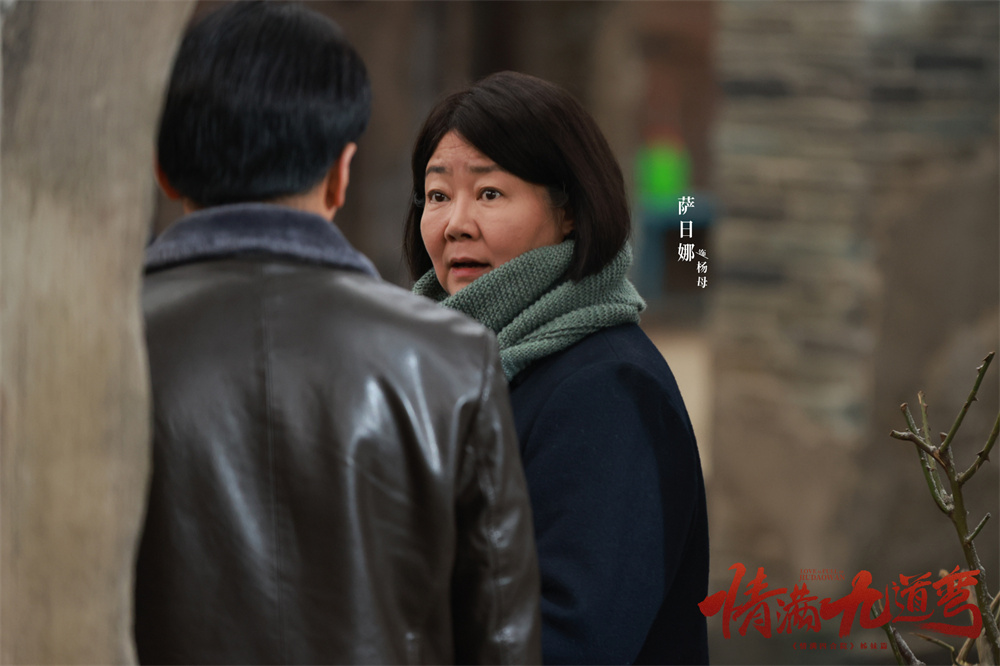
Sarina as Mother Yang
"For people of our generation, they respect and fear their parents from the bottom of their hearts, and they also attach great importance to their authority in front of their children. This is the family concept and parent-child relationship at that time, which is difficult to change. And, after experiencing life During the difficult period, young people at that time were very grateful to their parents." Liu Jiacheng explained.
"It was too poor at that time," Liu Jiacheng used himself as an example. "When I was young, my parents' salary combined was less than 100 yuan a month, and I had to support 6 people in the family. Yang Shumao's family was not as good as mine. His parents' combined salary was 60 to 70 yuan." There are 8 people in his family. How much do you think the parents have to sacrifice to raise 6 children to grow up? People who have passed through that era must know how much the parents have suffered and how to save food and money. Raise 6 children to grow up healthy and healthy."
Because of this difficulty, Liu Jiacheng believes that their generation is always very considerate to their parents, "When I was young, my parents took me to the store, and I was really hungry. They spend money, and they can’t do it for a dime, but they just think it’s not easy for them. That kind of gratitude and admiration will make you endure a lot.” The reason why Yang Shumao subdued his mother time and time again is because he grew up in a difficult environment , He has a lot of gratitude to his parents. Liu Jiacheng said bluntly, "This family relationship is definitely not valid when it is in the present. But there is a reason for this group of relationships in a specific era."
In the play, Mother Yang is used to asking for all kinds of benefits from Yang Shumao, who is the most up-to-date, to supplement the other children who are not up-to-date. But when the audience was itching with hatred, she understood that it was not easy for Yang Shumao to go out and make a living, so when Yang Shumao was in the most difficult time, when he couldn't get along outside, she took out all her family assets and gave him 50,000 yuan. There is no good face on the face.
Liu Jiacheng recalled that in the past, when he returned to Beijing after filming and went to visit his parents, his father must have had a bad face. He didn't fall asleep all night, and went out at dawn to buy all Liu Jiacheng's favorite food. "But as soon as I came back, he pretended to be the patriarch with a sullen face. It doesn't matter if you come or not. It doesn't matter to me." Liu Jiacheng said, "In the family relationship of our generation, there are more or less gaps and distances between parents and children. , Children are afraid of their parents since they were young, and parents don’t express much love to their children. The parent-child relationship is different now, and communication and equality should be emphasized, which should be vigorously advocated.”
In addition, many young audiences did not understand Yang's mother's obstruction and control of Yang Shumao's marriage in every possible way. The three women around Yang Shumao are Ye Fei from an intellectual family, Shi Xiaona from a capitalist family, and Zhao Yajing from an ordinary worker's family. Three women, three characters of different classes and typical environments, Liu Jiacheng believes that from Yang's mother's cognition, it is normal to choose Zhao Yajing at first. "Because to put it bluntly, only Zhao Yajing's family class may be lower than that of the Yang family. Yang's mother thought, 'When I was the deputy director of the street, your family still had to listen to me.' She was always unconfident and hoped to find My daughter-in-law, people think highly of her."
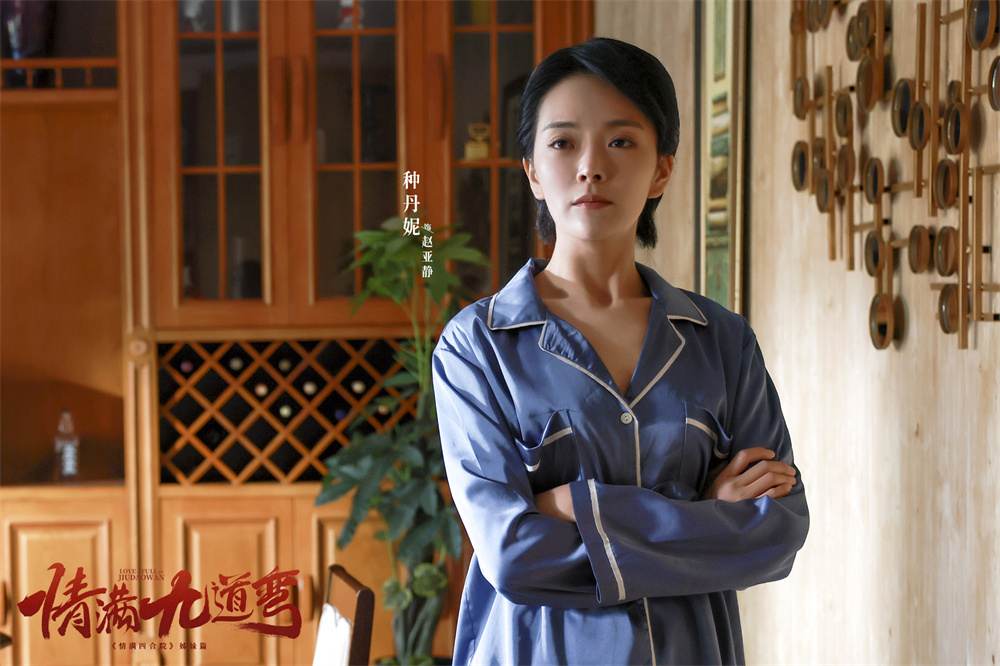
Danni Chong as Zhao Yajing
As for Shi Xiaona and Ye Fei, she always took other people's backgrounds into consideration. For Ye Fei's biggest rejection, Yang's mother felt that the intellectuals were sour and fake on the one hand, and on the other hand, Liu Jiacheng talked about a part of the plot in the plot. Yang's mother participated in the ransacking of Ye Fei's house during the "Cultural Revolution". At that time, she did something she regretted all her life: "When the house was ransacked, she saw a pack of glass stockings, imported from the Soviet Union. She had never seen such socks before. Unable to hold back her curiosity, she took a few pairs home. After returning home, she felt that it was immoral, so she secretly returned them. After she tried on one pair, she felt it was inappropriate to return it, so she kept it. She has been under this psychological pressure all her life." Liu Jiacheng said, "People nowadays see it as just a pair of socks, isn't that a joke? As for? But in those days, people's moral standards were different, and taking this pair of socks seemed to them to be Moral character issues. And when she took the socks, she found that Ye Fei's parents had seen them. So she always felt that she couldn't hold her head up in front of their family."
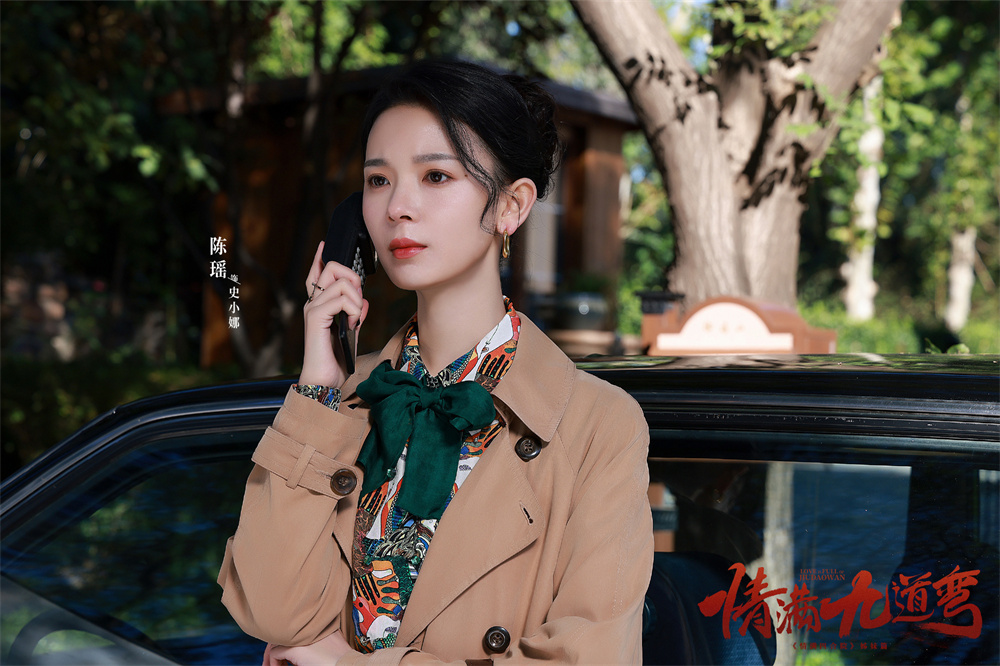
Chen Yao as Shi Xiaona
And behind her resistance to Shi Xiaona and Yang Shumao's first love, there is also a deep-rooted thought of "wrong family and family", and she is also worried that Shi Xiaona and her family will "overwhelm her" after her son gets married. The love between Shi Xiaona and Yang Shumao was obstructed by feudalism from the family. This point, in the eyes of many young audiences, is also confusing: the word "feudalism" should have disappeared after the founding of the People's Republic of China. But in fact, we may not realize that this kind of feudal thinking, especially the embodiment of feudal thinking in the family, is gradually awakened and eliminated from generation to generation. Liu Jiacheng believes that in fact, many "feudal" ideas began to gradually disappear with the reform and opening up. Before the reform and opening up, many families still had a deep imprint of "feudalism". Ah, many families have continued this set. The liberation of the mind is gradually completed from generation to generation, and it will disappear naturally."
The relationship between cities and people is an unchanging theme
The theme of "Love in Nine Bends" is the story of young people starting a business in Beijing's hutongs during the reform and opening up. The theme of reform and opening up is not uncommon on TV screens in recent years. Openness affects and changes people, including interpersonal relationships, rather than just focusing on the development benefits brought about by reform and opening up. It shows that under the impact of the tide of that era, people's impetuousness, greed, being dazzled by money, and the test of human nature and interpersonal relationship. After the collapse of the old morality and the old economic order, life is in sight.
"Facing the turning point of history, everyone feels shocked, confused, confused, and at a loss. Some people work hard to make progress, and some get carried away after earning a little money. You can see all aspects of human nature." Yang Shumao experienced in the play Several ups and downs, every time someone chooses to leave him to protect their own interests, or chooses to abandon him and step on another foot, or some people insist on standing with him. The rapid changes in the relationship between people reflect the different choices of people under the changing tide of the times. "Under the impact of the reform and opening up, the choices people will make are closely related to their cultural background and knowledge." Liu Jiacheng thinks so.
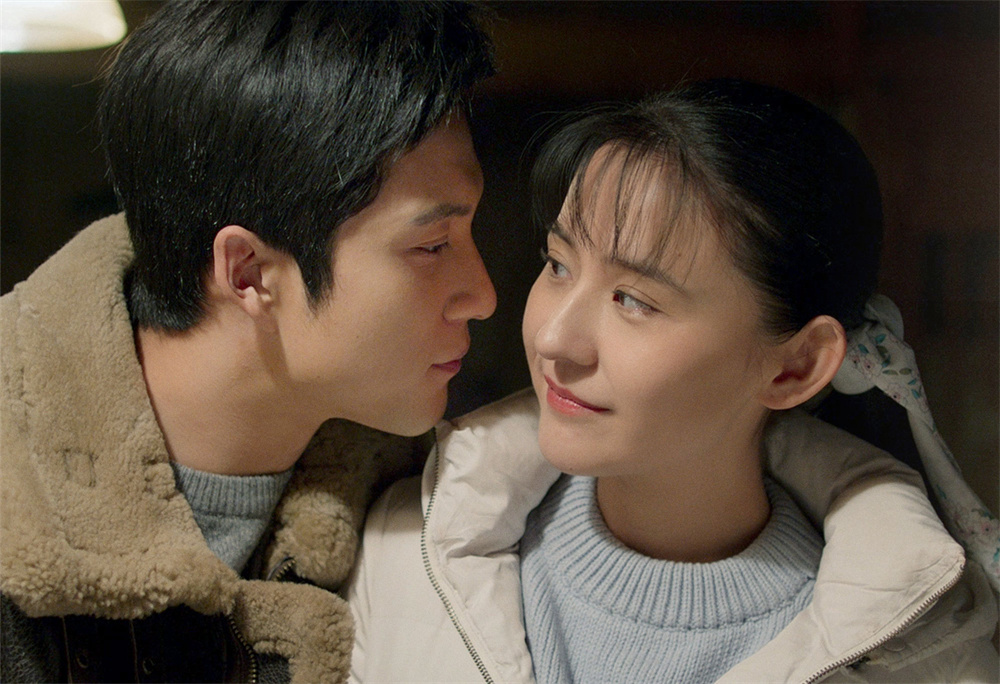
Yang Shumao, Ye Fei
Emotionally, Yang Shumao firmly chose Ye Fei. Liu Jiacheng believes that Ye Fei's intellectual family background has a lot to do with it. Under the impact of everyone's experience of money, Ye Fei is the person with the most stable core. Facing the waves, her self-cultivation and knowledge allow her to remain calm and stable. She can provide great spiritual support to the hero because of her family education and knowledge. "In addition, she likes to paint, immersed in knowledge and art, a little detached from reality. We Beijingers call this girl 'Bei Erao', with arrogance. We have lived in alleys since childhood, and almost every alley, There are girls like Ye Fei. First, her family has always given her spiritual and material support; second, she believes that love can overcome everything. She has this spiritual pursuit, and she is more open-minded. With money, I can live, as long as I have plenty of energy, I am happy. Material things are not so tempting to her."
Counting past works, "Silly Spring" is an emotional story of a family. "Love in a Courtyard" is an emotional story of a courtyard. Liu Jiacheng hopes to continue this description of old Beijing's love and human relationship. "After "Love in Nine Bends", I will make a story about Gui Street. Beijing also hopes With the help of the central axis to apply for World Heritage, ask Wang Zhili and me to write a story about Beijing’s central axis.” Liu Jiacheng said, “The environment is getting bigger and bigger, the characters are more and more, the plot is more complicated, and the emotional conflicts are more complicated. Of course, the difficulty is getting bigger and bigger."
As for telling the story of contemporary Beijing, in Liu Jiacheng's vision, the perspective will be broader than the story of old Beijing: Beijing is not only the Beijing of Beijingers, but also the capital of the people of the whole country. "How foreigners gain a foothold in Beijing, how Beijingers accept changes and foreigners, the collision and integration of living habits and values" are all Liu Jiacheng wants to write. His creations are always based on the history of the city and the process of urbanization, telling the characters in the process, and its constant theme is always the relationship between the city and people.
"Beijing-style culture is a treasure, which is inexhaustible." But at the same time, Liu Jiacheng also very much hopes to develop regional culture in various places and cultivate talents for regional cultural creation. "I also hope that Shanghai-style, Sichuan-style, and Cantonese-style cultures will come out. , to be seen by more viewers.”
"Different places have different natural environments, different cultures, and local people have different temperaments and attitudes towards life. The local stories told by TV dramas should also be different, and a hundred flowers bloom. Now our film and television dramas are too homogeneous." Liu Jiacheng said He believes that "China is a multi-ethnic country, Chinese culture is a big river, and all our ethnic and regional cultures are tributaries. When the water in the tributaries dries up, the water in the big river will naturally dry up; only when the water in the tributaries is full can the water in the big river be full." .”


